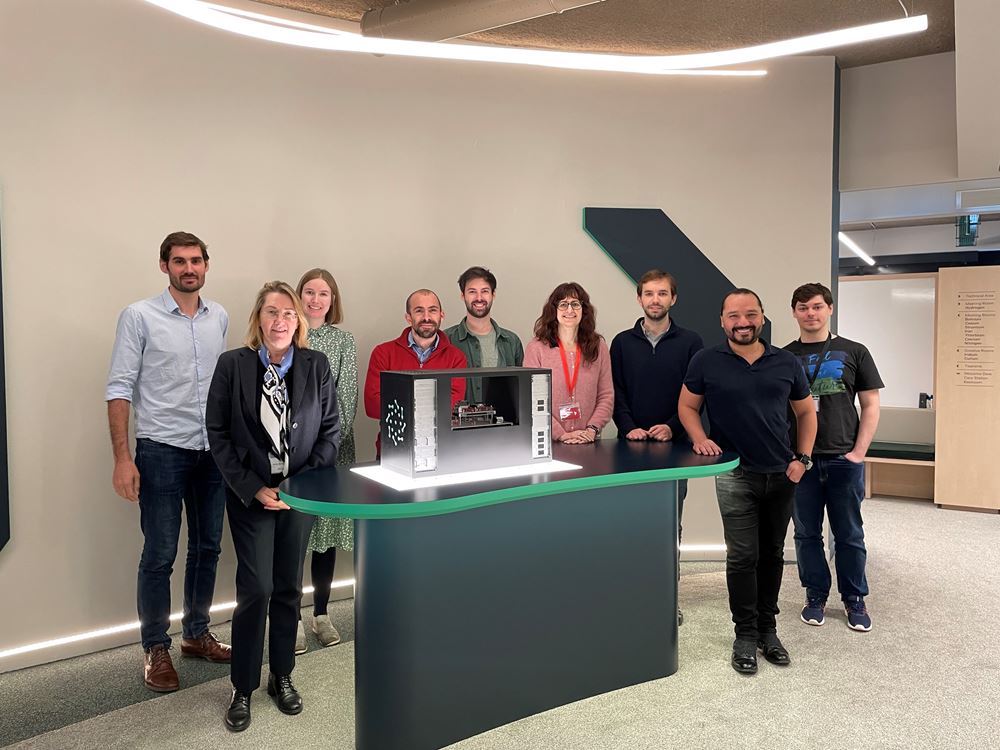Pasqal and Riverlane Pursue Real-Time Quantum Error Correction for Fault-Tolerant Neutral Atom Technology

Insider Brief:
- Pasqal and Riverlane announced a partnership to advance fault-tolerant quantum computing, integrating Pasqal’s neutral atom platform with Riverlane’s Deltaflow quantum error correction stack.
- Deltaflow is designed to detect and correct errors in quantum computations, addressing the challenges of noisy small-scale systems and potentially contributing to the progress toward reliable, large-scale quantum computers.
- The collaboration intends to accelerate real-time error correction capabilities, with potential applications in energy, pharmaceuticals, materials science, and artificial intelligence.
- Pasqal and Riverlane plan to co-develop business initiatives and pursue funding opportunities, emphasizing the importance of collaboration in overcoming quantum computing’s technical and commercial barriers.
PRESS RELEASE — In a recent release, Pasqal, a company specializing in neutral atom quantum technology, and Riverlane, the creator of Deltaflow and the quantum error correction stack, announced a partnership. The collaboration intends to bring the field closer to fault-tolerant quantum computing in the form of systems capable of real-time error correction.
Combining Neutral Atom Technology with the Deltaflow Stack
The partnership will integrate Pasqal’s neutral atom quantum computing platform with Riverlane’s quantum error correction stack, Deltaflow, described in the release as “the first of its kind.” Neutral atom quantum computing uses arrays of individual atoms controlled by laser beams, a system that has been described as having high connectivity and stability.
Deltaflow, Riverlane’s QEC stack, is designed to detect and correct errors in quantum computations. As noted in the announcement, this capability is essential for overcoming the limitations of today’s small-scale noisy quantum systems, which struggle to perform the millions of error-free calculations necessary for practical applications. By combining these technologies, Pasqal and Riverlane are hopeful they can accelerate the timeline to early fault-tolerant quantum computers.
The Road to Fault-Tolerant Quantum Computing
Fault-tolerant quantum computing is widely regarded as the foundation for realizing quantum computing’s full potential. Loïc Henriet, Co-CEO of Pasqal, emphasized this point: “Fault tolerance is the cornerstone of quantum computing’s future. While Pasqal’s neutral atom technology offers a uniquely scalable and stable platform, Riverlane’s state-of-the-art error correction expertise addresses the final bottlenecks to large-scale deployment”
The release highlighted the far-reaching implications of fault-tolerant quantum systems. In the energy sector, for instance, Pasqal is exploring how its technology can advance the discovery of organic materials for more efficient batteries, a relevant innovation in the journey to sustainable energy solutions. Beyond energy, fault-tolerant quantum computers may create notable, positive impact in the fields of pharmaceuticals, materials science, and artificial intelligence by providing precision and scalability on a scale yet to be known.
Collaborative R&D and Commercial Opportunities
The partnership between Pasqal and Riverlane extends beyond technical innovation. The companies plan to co-develop marketing and business initiatives, identifying potential public and government funding opportunities to further their collaboration. According to the release, this strategic alignment supports their shared vision for advancing quantum computing to address societal challenges.
Steve Brierley, CEO and Founder of Riverlane, highlighted the importance of collaboration in this effort: “At Riverlane, we believe that quantum error correction is the key to unlocking the full transformative power of quantum computing. By integrating our cutting-edge quantum error correction stack with Pasqal’s advanced neutral atom platform, we directly tackle the critical challenge of achieving fault tolerance. This partnership underscores the importance of collaboration in building reliable large-scale, quantum computers that will redefine industries and tackle humanity’s most pressing challenges.”
